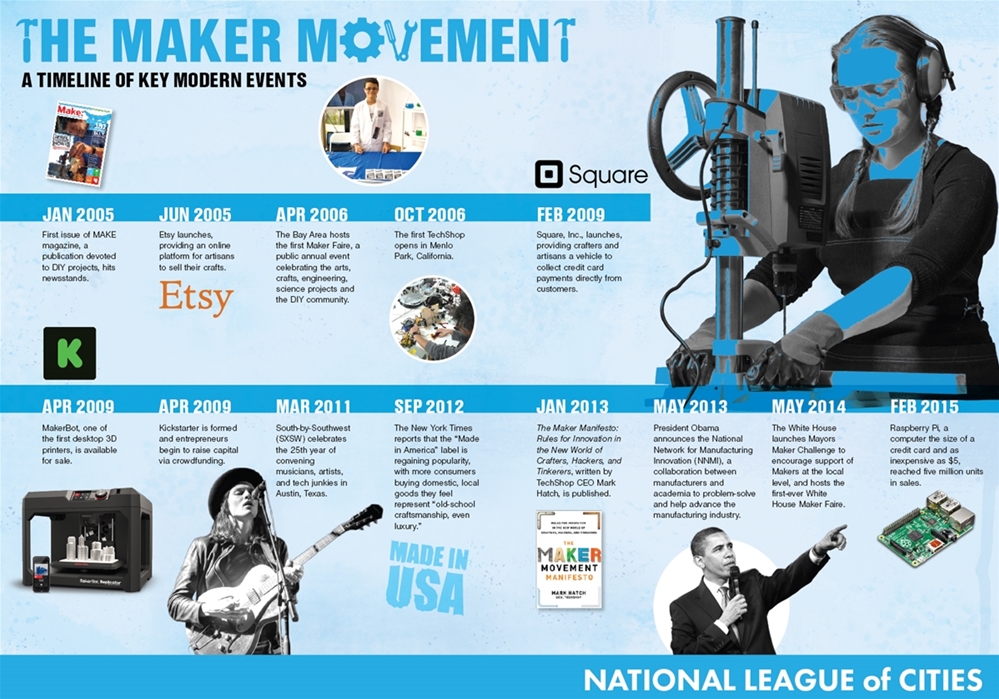One way to give new life to struggling cities
.. is Digital DIY, of course.
Four years ago (*), while working in the EU/H2020 research project on Digital DIY (DiDIY), I came across an article about “How The Maker Movement Is Revitalizing Industry In American Cities”. That piece was, and still is in 2020, a good overview, with links to a full report, of the role that Digital DIY (and public libraries!) can play in the (re) organization of work and economic growth of struggling cities:

“Economic investments in startups, maker spaces, and the broader technology sector are resulting in real value for the city at large. The increased revenue from economic growth has translated into bike lanes, parks, and events—projects aimed at making the city a more livable and vibrant place that people increasingly want to call home."
“From Rust Belt cities like Pittsburgh to rugged-outdoors towns like Burlington, Vermont, the maker movement is providing localities a framework for unlocking growth and engaging citizens. Thinking long term is one of the critical things that all cities have to do and Burlington has been hard at work preparing the next generation of makers. The city, in a reflection of a growing number of communities, is leveraging the power of its library system as a learning tool beyond books, with 14 libraries in the region offering maker workshops for K-12 students."
“The full spectrum of what is happening in these cities and more is explored in a report just released by the National League of Cities, titled “How Cities Can Grow the Maker Movement”."
WHY is all this “VERY” relevant TODAY?
The answer is very simple: Because, with COVID19 tearing Europe’s economy apart, “struggling cities” are literally everywhere this year. And rebuilding the economy of those cities in the exact, same, dumb ways it was in 2019 may be the biggest error induced by the pandemic.
(*) This updated version of a blog post I wrote for the DiDIY project was prepared in March 2020 but only put online in August, due to… my Coronavirus reports, of course
Who writes this, why, and how to help
I am Marco Fioretti, tech writer and aspiring polymath doing human-digital research and popularization.
I do it because YOUR civil rights and the quality of YOUR life depend every year more on how software is used AROUND you.
To this end, I have already shared more than a million words on this blog, without any paywall or user tracking, and am sharing the next million through a newsletter, also without any paywall.
The more direct support I get, the more I can continue to inform for free parents, teachers, decision makers, and everybody else who should know more stuff like this. You can support me with paid subscriptions to my newsletter, donations via PayPal (mfioretti@nexaima.net) or LiberaPay, or in any of the other ways listed here.THANKS for your support!